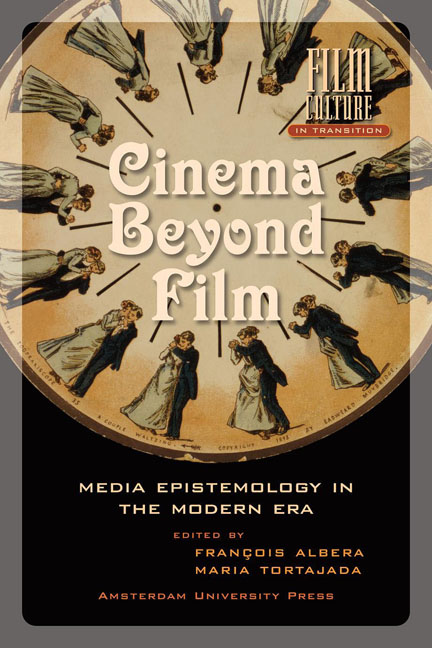From Broadcast Performance to Virtual Show: Television’s Tennis Dispositive
Published online by Cambridge University Press: 22 January 2021
Summary
In 2001, Jean-Luc Godard was interviewed by the French sports newspaper L’Équipe. He put forward his views on the modes of audiovisual representation of sport, saying that, for him, sport is one of the rare fields of expression in today’s world that is characterised by a form of ‘truth’, thanks to the material inscription of physical performance in space: ‘I still watch sport because something has remained where the body does not lie’. However, he was more critical of the perceptions in the media of the movements of sportsmen and women, especially when shown on television. Despite the constraints that come from the physical distance between the athletes and one part of the spectators, Godard believes that a fragmentary experience of reality (where ‘one can clearly see that one sees little’) is better than the pretence, maintained by television, of optimally reproducing a sports performance, which he assimilates to the production of a deceitful illusion. He backs up this position by alluding to tennis, a sport he personally indulges in and to which he refers on different occasions in his writings and cinematographic work. His first examples are basically laconic value judgements on the personalities and physical attributes of the players – when going to Roland-Garros, Anna Kournikova seemed to him to be ‘really beautiful and really elegant’, or Thomas Muster had finally divested himself of the lumberjack image he had in the media. He then goes on to examine the more serious question of ball speeds (whereupon he makes some not terribly original comments about the blatant difference between the power of Venus Williams’s and Martina Hingis’s strokes) and which television, in his view, is quite ‘incapable of rendering’.
Against the mediatization of sport: A critical perspective
Such statements – however valid they may be – are, of course, too peremptory to be of any real theoretical value, but they are of use in that they do lead to important issues regarding how the media represents sport. Godard’s pessimism derives from a more general philosophical criticism of contemporary audiovisual culture, which – as a more or less conscious extension of the ideas first developed by the theorists of the Frankfurt School, and then by Guy Debord and Jean Baudrillard – is seen as irremediably subservient to the gradual arrival of a showbiz society centred on the excessive commercialisation of symbolic goods.
- Type
- Chapter
- Information
- Cinema Beyond FilmMedia Epistemology in the Modern Era, pp. 193 - 214Publisher: Amsterdam University PressPrint publication year: 2012



